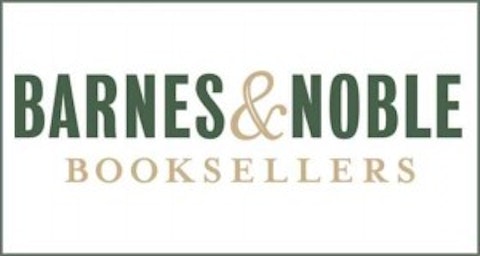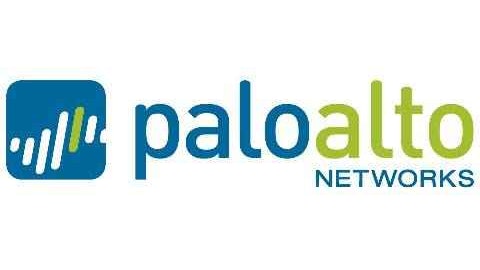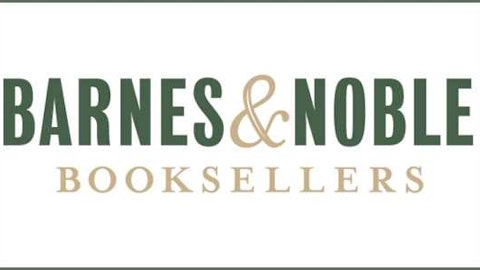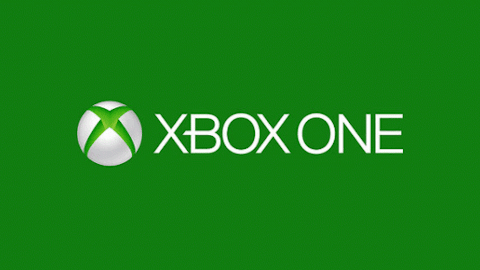
Lynch’s departure was part of a major management shuffle, in which CFO Michael Huseby was promoted to the dual role of the CEO of the Nook Media division and the President of Barnes & Noble, Inc. (NYSE:BKS). In addition, vice president Allen Lindstrom was appointed as Barnes & Noble CFO, and vice president of corporate development Kanuj Malhotra was promoted to the CFO of Nook Media. However, a new CEO for the entire company has yet to be appointed.
On top of all of this, Chairman Leonard Riggio hasn’t abandoned his ideas of either splitting up the business or taking it private. What does all of this chaos mean for investors? Should investors pick up some shares of Barnes & Noble, Inc. (NYSE:BKS), and bet on an eleventh hour turnaround, or is this the beginning of the end for the retail giant?
A painful end for the Nook
When the Nook was released in 2009, there were plenty of reasons for shareholders to be optimistic regarding its growth prospects. After all, Amazon’s Kindle e-readers, released in 2007, had enjoyed enormous success in making e-books popular.
Unfortunately, Barnes & Noble, Inc. (NYSE:BKS) underestimated Amazon’s strength, and missed the fact that Amazon’s popularity was not only rooted in book sales, but also sales of everything else. Amazon had become to e-commerce what Google Inc (NASDAQ:GOOG) was to Internet search.
In 2011, Amazon.com, Inc. (NASDAQ:AMZN) was able to channel all that demand into its first tablet computer, the Kindle Fire, which quickly became the second most popular tablet in America after Apple Inc. (NASDAQ:AAPL)’s iPad. It also used the tablet as a platform to launch a streaming video service to compete with Netflix.
Barnes & Noble was unable to remain competitive in these categories, which led to a dismal fourth quarter, in which Nook Media reported a 34% year-on-year drop in revenue to $108 million and a 130% decline in Earnings Before Interest, Taxes, Dividends and Amortization (EBITDA). Sales of digital content also declined 9% – a painful plunge from the 6.8% gain it reported last quarter. In other words, the company could not part with its Nook tablets at steep discounts, while existing Nook owners had lost interest and moved on. The business had failed on all counts.
Barnes & Noble, Inc. (NYSE:BKS) hasn’t reported its e-book market share since May 2011, when it still controlled 25%. By now, that market share has likely shrunk to less than 15%, since Amazon.com, Inc. (NASDAQ:AMZN) and Apple Inc. (NASDAQ:AAPL) recently reported that they respectively controlled 65% and 20% of the market.
Microsoft’s $1.7 billion bridge to nowhere
Earlier this year, Barnes & Noble investors were excited by the prospects of a Microsoft Corporation (NASDAQ:MSFT) takeover. Since Microsoft Corporation (NASDAQ:MSFT) already owns 17% of the Nook Media division, which values the business at $1.7 billion, some analysts speculated that it was only a matter of time before the tech giant simply acquired the business. Others believed that Microsoft could absorb the Nook tablet business and make its own lower-end tablet to compete against Apple Inc. (NASDAQ:AAPL), Samsung, and Amazon.
However, Microsoft dispelled those rumors, only offering tepid support for the Nook via apps for its Windows 8 and Windows Phone devices. Not much has been heard from Microsoft Corporation (NASDAQ:MSFT) since, and it’s likely that the company will simply abandon its efforts with the Nook.
Another minority stakeholder is British publisher Pearson, which owns a 5% stake in the business that values it even higher, at $1.8 billion. Pearson’s investment is focused more on Nook’s college textbooks business than its tablets and e-books.
Tough choices ahead
During the fourth quarter, Barnes & Noble, Inc. (NYSE:BKS)’s numbers last quarter were ugly across the board. The company reported a loss of $118.6 million, down from a loss of $56.9 million in the prior year quarter. Total revenue declined 7.4% to $1.28 billion. Excluding the disastrous losses at Nook Media, which comprises 26% of the company’s top line, the company would have squeezed out a profit. On a per share basis, Barnes & Noble lost $2.11 per share, far worse than the loss of $0.96 per share that analysts had expected.
Meanwhile, its brick-and-mortar business appears to be headed for the same fate as its former competitor, Borders, which went bankrupt and was absorbed by Barnes & Noble in 2011. Sales at Barnes & Noble’s retail stores plunged 10% and EBITDA declined 24%. Same-store sales declined 8.8%. Again, excluding sales of Nook products, same-store sales would have posted a slightly lower decline of 5.8%.
Considering these major problems with the company, it’s no wonder that Chairman Leonard Riggio, who acquired Barnes & Noble, Inc. (NYSE:BKS) in 1971 and expanded it into the largest bookseller in the world by 2000, is interested in splitting the company up and taking its nearly 700 retail stores private. If Riggio moves ahead with this plan, he will likely sell or spin off the Nook Media division. However, which company could want to purchase Nook Media in its current state? In addition, Riggio will need to contend with Microsoft and Pearson, which own a combined 22% of the troubled division.
Potential suitors and partners
Although Nook Media looks quite toxic in its current state, I believe that Amazon and Microsoft could both successfully acquire the business and turn it around. Amazon has a habit of absorbing its competitors, such as Goodreads, with the intention of growing its user base. Amazon was willing to pay an estimated $150 million to acquire Goodreads’ 16 million members. The estimated 10-15 million Nook users still out there could be a worthy prize for Amazon, and a symbolic victory over its former adversary.
In addition, combining Nook Media’s design and manufacturing division with Amazon’s Lab126, which created the Kindle, could generate some significant cost-saving synergies. If the acquisition is made on mutually friendly terms, Amazon could even use Barnes & Noble’s brick-and-mortar locations to expand its fulfillment center network.
Microsoft, on the other hand, should simply take over Nook Media to keep it out of the hands of Amazon and Google. Google was rumored to be interested in acquiring the Nook Media division to create a more robust e-book platform to rival Amazon and Apple, which could be very disruptive when combined with its current plans to dominate Internet radio. It would be a wise move for Microsoft to use Nook Media to widen its defensive moat against both companies.
Even if Microsoft doesn’t want to go as far as acquiring Nook Media, it could answer Barnes & Noble’s call for a “co-branding” partner to produce Nook color tablets. Microsoft-branded Nook tablets could give the products a technological legitimacy that they had lacked before.
The Foolish Bottom Line
Despite these tantalizing possibilities, I believe investors should avoid shares of Barnes & Noble, Inc. (NYSE:BKS). There are simply too many uncertainties on the horizon, and its financial metrics are all headed in the wrong direction. I think there is still a lot of downside for this stock, and any upside potential will be generated by talks of a spin-off or acquisition, rather than through any real fundamental growth.
The article This Book Retailer Is Approaching its Eleventh Hour originally appeared on Fool.com and is written by Leo Sun.
Leo Sun has no position in any stocks mentioned. The Motley Fool recommends Amazon.com. The Motley Fool owns shares of Amazon.com and Microsoft. Leo is a member of The Motley Fool Blog Network — entries represent the personal opinion of the blogger and are not formally edited.
Copyright © 1995 – 2013 The Motley Fool, LLC. All rights reserved. The Motley Fool has a disclosure policy.




